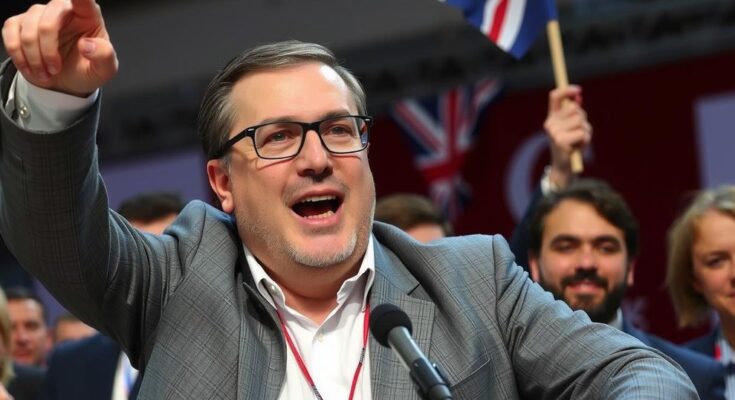Zoran Milanovic is set to win a second term as Croatia’s President, achieving 51.48% of the vote in the first round of elections, thus avoiding a runoff. His continued presidency is marked by tensions with Prime Minister Andrej Plenkovic, amid contrasting views on Croatia’s foreign policy and internal governance. Milanovic’s assertive and controversial leadership style positions him as a polarizing figure as he navigates political challenges in the context of the ongoing war in Ukraine.
Zoran Milanovic, the incumbent President of Croatia, is poised to secure a second term following a decisive victory in the first round of the presidential election, garnering 51.48% of the vote as per exit polls released after the polls closed on December 29. This result significantly positions Milanovic to continue in his capacity, despite the ongoing tensions with the government of Prime Minister Andrej Plenkovic, which have frequently led to public disputes between the two leaders.
Backed by the opposition Social Democratic Party (SDP), Milanovic is set to avoid a runoff election against his closest competitor, Dragan Primorac, the candidate from the ruling Croatian Democratic Union (HDZ), who received only 19.29% of the vote. Independent candidate Marija Selak Raspudic is anticipated to place third with 8.84% of the votes. This election, characterized by lower voter turnout compared to the previous presidential election in 2019, highlights Milanovic’s dual role as a popular and polarizing figure in Croatian politics.
Though the Croatian presidency is largely ceremonial, Milanovic’s assertive style and confrontational rhetoric have rendered this election a critical measure of the nation’s alignment with Western ideologies and positions, particularly concerning the ongoing conflict in Ukraine. Since assuming office in 2020, Milanovic has often been at odds with Plenkovic, with detractors labeling his politics as populist and occasionally sympathetic towards Russia.
Recently, tensions escalated over Croatia’s participation in a NATO training mission in Ukraine, culminating in a public exchange where Plenkovic accused Milanovic of attempting a coup when the president intervened in military staff appointments. Moreover, Milanovic had considered running for the prime ministerial position, which bears more executive authority than the presidency, but was prevented from doing so by the Constitutional Court.
Primorac, a university professor and pediatrician, campaigned on principles of national unity and adherence to Western alliances. His candidacy emerged from the HDZ, which had secured a win in the previous general elections, though his campaign was severely impacted by a recent corruption scandal involving the HDZ’s health minister, leading to public concerns regarding the integrity of the healthcare system. As the electoral climate shifted, public sector workers demanded wage increases, contributing to the challenges facing the ruling administration.
In a brief expression of gratitude, Milanovic acknowledged his supporters on Facebook, stating: “Thank you all for your support!” The SDP vice-president, Mirela Ahmetović, heralded the results as a victory for a principled Croatia, asserting that the electorate rejected Plenkovic’s governance: “An absolute triumph for a civic and honest Croatia! The citizens did not believe Plenkovic’s lies… this is his heavy defeat.”
The recent Croatian presidential election has emerged as a pivotal moment in the political landscape of Croatia. Incumbent President Zoran Milanovic, a member of the opposition Social Democratic Party (SDP), faced off against Dragan Primorac from the ruling Croatian Democratic Union (HDZ). The election is particularly significant given the ongoing tensions between the presidency, which, while largely ceremonial, has become a platform for Milanovic’s outspoken and often confrontational style, and the more powerful role of the prime minister. Coupled with the backdrop of Croatia’s geopolitical positioning amidst the crisis in Ukraine, the election has become a litmus test of public sentiment regarding governance, corruption scandals, and economic concerns.
President Zoran Milanovic has decisively won the first round of the Croatian presidential election, avoiding a runoff and strengthening his position within a politically charged environment marked by conflict with Prime Minister Andrej Plenkovic. Milanovic’s assertive leadership has stirred both support and opposition, making this election a critical assessment of Croatia’s current political direction amidst broader international issues such as the war in Ukraine. As the results unfold, the implications for the future governance of Croatia remain significant, with Milanovic’s win highlighting a rejection of the incumbent’s policies by a portion of the electorate.
Original Source: www.intellinews.com




